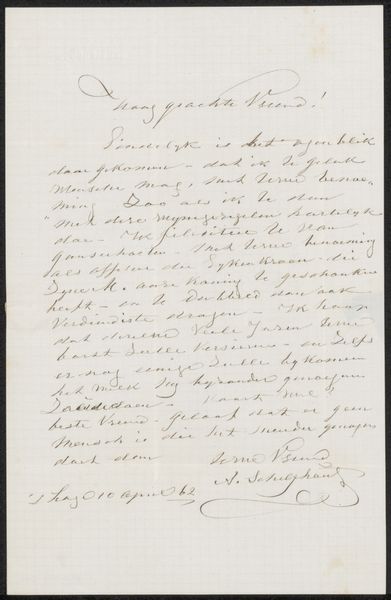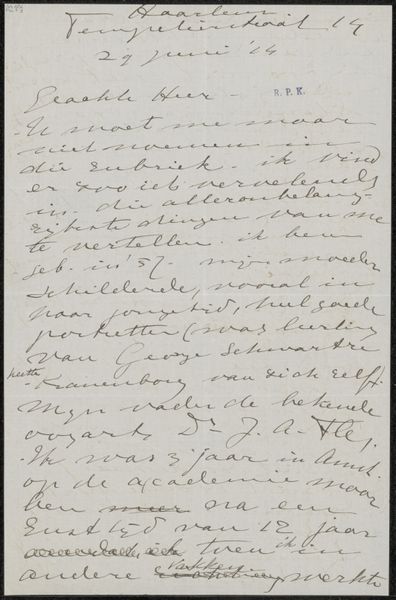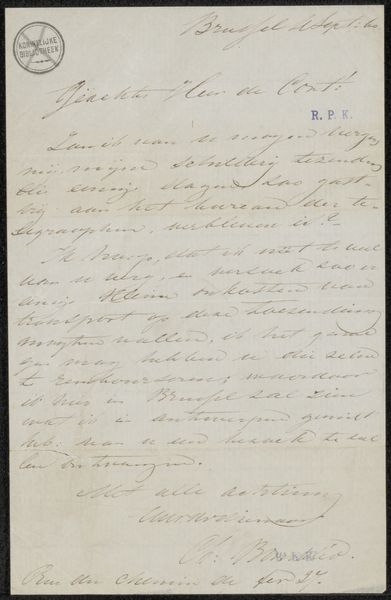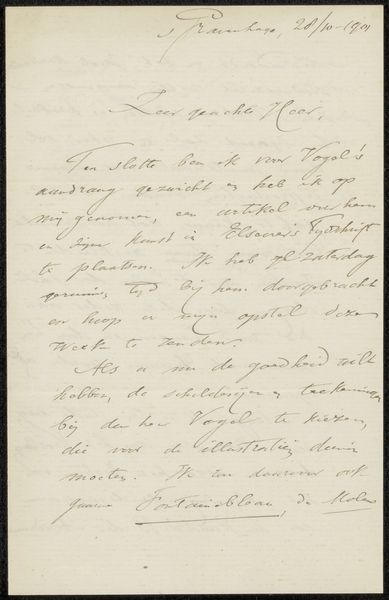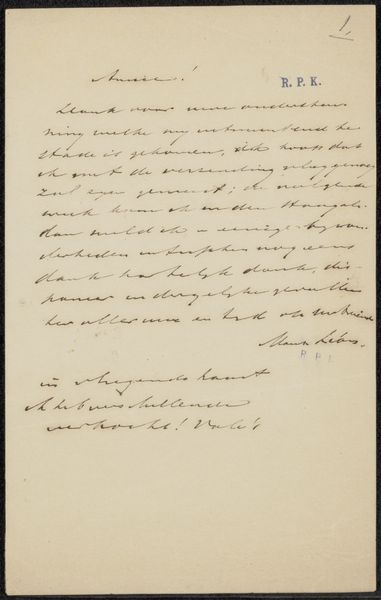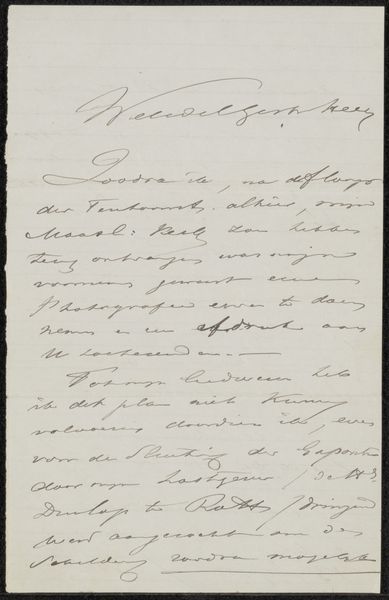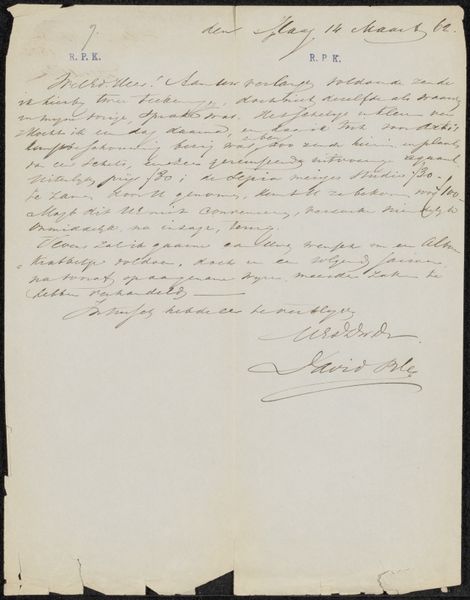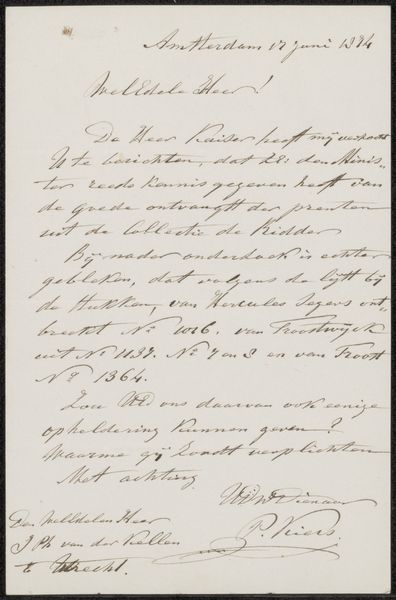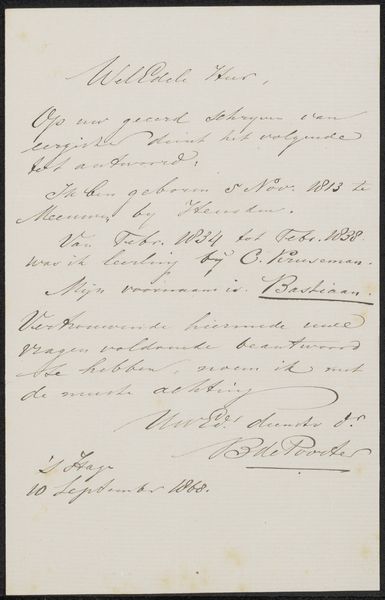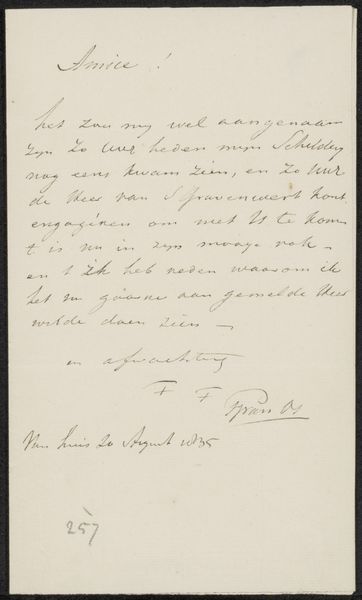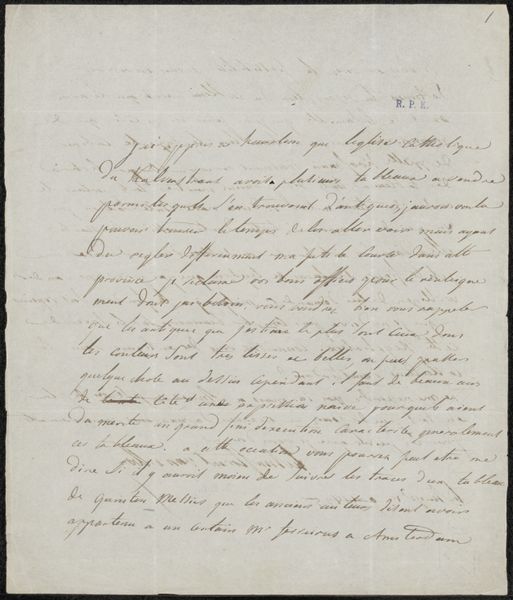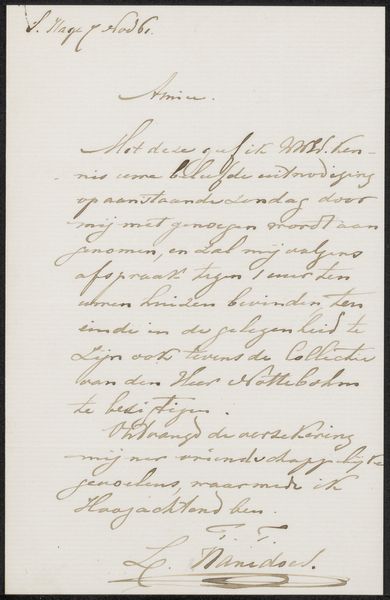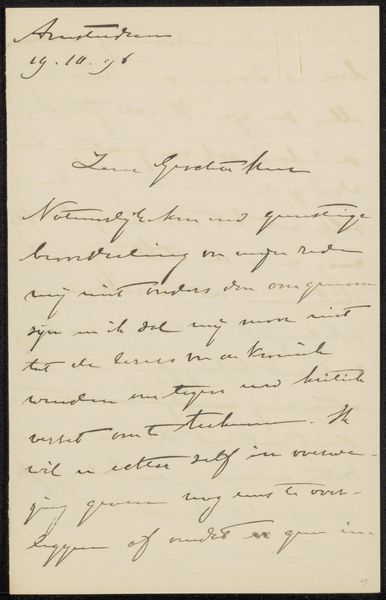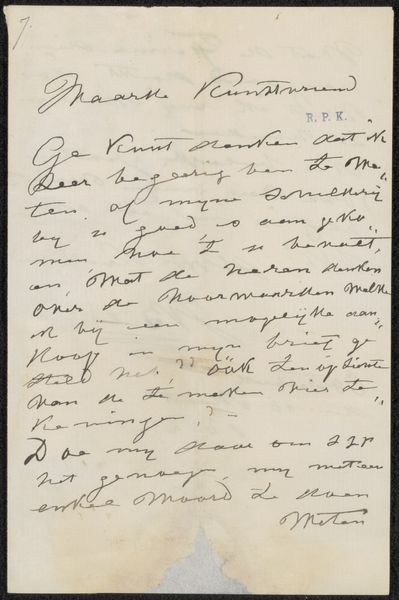
drawing, ink, pen
#
portrait
#
drawing
#
ink drawing
#
pen sketch
#
personal sketchbook
#
ink
#
romanticism
#
pen
Copyright: Rijks Museum: Open Domain
Curator: This little sketch, “Brief aan Ernst Willem Jan Bagelaar,” created around 1820 by Jan Willem Pieneman, is made with pen and ink. There’s a fragility about it…a quiet intimacy. Editor: Immediately, I see this as an act of correspondence and an attempt to construct relations of trust through carefully chosen words, a curated and very subjective form of writing meant only for specific eyes. Curator: It's a personal letter. You can almost see Pieneman hunched over his desk, meticulously crafting each word with his pen. I imagine a soft light… Maybe a flickering candle? Editor: Letters are about power. About access to information. Think about who had the privilege to learn to read and write in the 19th century—it immediately limits and stratifies the reach of this artform. Who gets to communicate and leave traces? Curator: Right! And he would be using quill and ink, no doubt carefully mixing the ink, feeling the texture of the paper...it’s all part of the artmaking. Does that care extend to his recipient too? Is it tenderness or protocol that informs each stroke? Editor: Perhaps both. Courtly mannerisms don’t have to nullify intimate affects. But consider what the Romanticism art movement prioritized during Pieneman’s time. There was often a very idealized—and often exclusionary—focus on self-expression. Think heroic individualism in paintings. Did that Romantic sensibility spill into even the ostensibly private arena of letter-writing? Curator: Definitely. It looks like he’s inviting his friend to maybe postpone a meeting, suggesting another day. I love the way he writes. It's not just information; there's a kind of elegance to it, a grace that elevates a simple task to something special. It seems precious. Editor: Well, Pieneman lived in an era undergoing significant social shifts, especially after the Napoleonic period. Letter-writing here could function almost like an exercise in solidifying old networks in the face of new social mobility. Keeping alliances alive on paper... Curator: I suppose it could. And yet it seems more, something to feel rather than analyze… Editor: Exactly. This tension, or this creative friction, between structure and the desire to break away—that’s Romanticism for you. Curator: Indeed, the human touch immortalized. I love catching these glimpses into people's personal stories. Editor: Absolutely, I feel the layers—power, friendship, social change all coming together through something as seemingly simple as a letter.
Comments
No comments
Be the first to comment and join the conversation on the ultimate creative platform.
